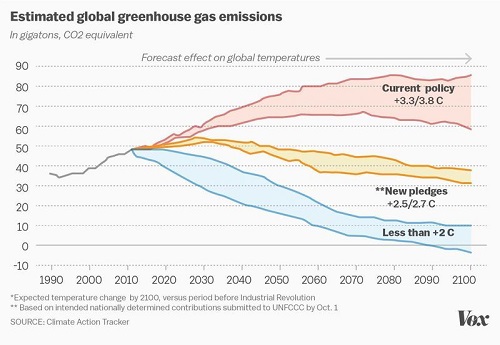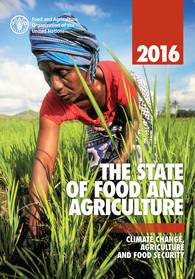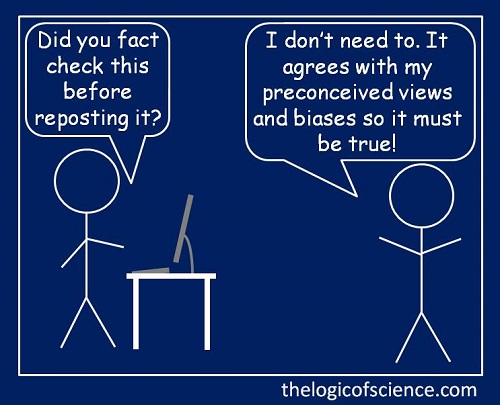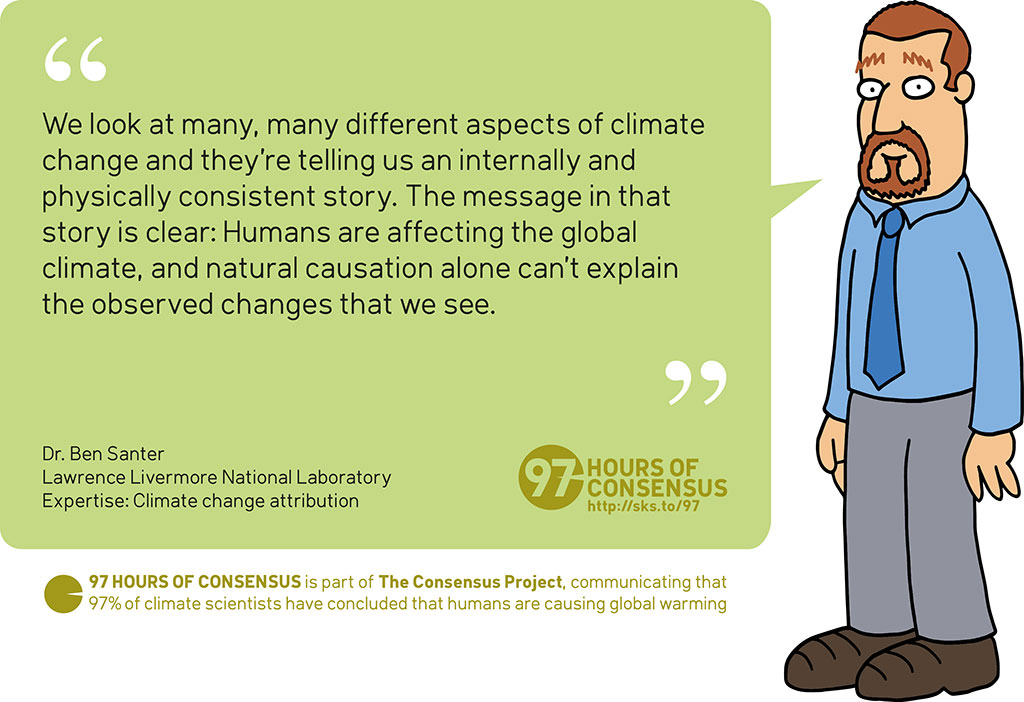
Story of the Week... SkS Highlights...La Niña Update... Toon of the Week... Quote of the Week... Graphic of the Week... SkS in the News... SkS Spotlights... Video of the Week... Coming Soon on SkS... Poster of the Week... Climate Feedback Reviews... SkS Week in Review... 97 Hours of Consensus...
After this election, it’s going to be difficult to believe that concern about global warming has finally reached critical mass. And I suspect that won’t change until its effects are knocking at our front door. Many Americans are still detached enough from consequences like drought, wildfire, and species extinction to hold onto a sliver of cognitive dissonance, and perhaps our candidates know that.
“There are too many good reasons why we humans resist the many sad facts of climate disruption, the ‘global weirding,’” said Per Espen Stoknes, author of What We Think About When We Try Not to Think About Global Warming.
“It finally boils down to the question, Why bother? Humans will act for the long-term when conducive conditions are in place.”
Remember When We Thought Climate Change Would Matter This Election? by Sarah Emerson, Motherboard, Oct 20, 2016
Using the metric of comments garnered, Insight into the scientific credibility of The Guardian climate coverage by Climate Feedback is the most popular of the articles posted on SkS during the past week.
Many have doubted forecasts calling for the onset of the first La Niña in almost five years, believing that its failure to materialize in convincing fashion last summer - as originally predicted - means that it may be off the table for 2016-17.
But in recent weeks, the oceans and atmosphere have been pulling everything into place to facilitate a potentially stronger La Niña than previously thought, so those who follow commodities markets may want to take a second look.
Last Thursday, the U.S. Climate Prediction Center reissued the La Niña watch that was removed in early September. The watch indicates that conditions are favorable for the phenomenon’s development within the next six months.
Stronger-than-expected La Niña may be brewing, Op-ed by Karin Braun, Reuters, Oct 20, 2016

Peter Gleick, president and chief scientist at the Pacific Institute: Given the clear scientific consensus on the threat of climate change, what will your administration do to reduce that threat to current and future generations?
Climate change is the most significant environmental threat to the planet, and its global nature means there are not just economic and social reasons to address it, but international political reasons as well. This makes it far more than an "environmental question." This makes it a question that’s deep and central to national security.
The Climate Questions the Next President Should Answer by Brian Kahn & Andrea Thompson, Climate Central, Oct 20, 2016

The article, 25 myths and bad arguments about climate change posted on the website, The Logic of Science contains multiple references and links to the SkS website and articles.

The pledge to eradicate hunger and poverty must go hand in hand with rapid transformations of farming and food systems to cope with a warmer world, FAO said today in a new report.
Agriculture, including forestry, fisheries and livestock production, generate around a fifth of the world's greenhouse gas emissions. Agriculture must both contribute more to combating climate change while bracing to overcome its impacts, according to The State of Food and Agriculture 2016.
"There is no doubt climate change affects food security," FAO Director-General José Graziano da Silva said while presenting the report. "What climate change does is to bring back uncertainties from the time we were all hunter gatherers. We cannot assure any more that we will have the harvest we have planted."
Food and Agriculture Organization (FOA) of the United Nations.
Before the Flood review – DiCaprio's level-headed climate change doc by Peter Bradshaw, Guardian, Oct 20, 2016

Climate Feedback asked its network of scientists to review 5 widely read articles published by The Guardian. Three were found to be both accurate and insightful. Two were found to contain inaccuracies, false or misleading information, and statements unsupported by current scientific knowledge.
Click here to access the detailed review.

Quote derived with permission and suggestion from author from:
"…we routinely look not only at land and ocean surface temperature. We look at ice coverage. We look at ice thickness. We look at the amount of water vapor in the atmosphere. We look at surface pressure patterns. We look at upper ocean heat content. We look at continental scale runoff from major rivers. We look at many, many different aspects of climate change and they're telling us an internally and physically consistent story. The message in that story is natural causation alone can't explain the observed changes that we see."
High resolution JPEG (1024 pixels wide)
Posted by John Hartz on Sunday, 23 October, 2016
 |
The Skeptical Science website by Skeptical Science is licensed under a Creative Commons Attribution 3.0 Unported License. |